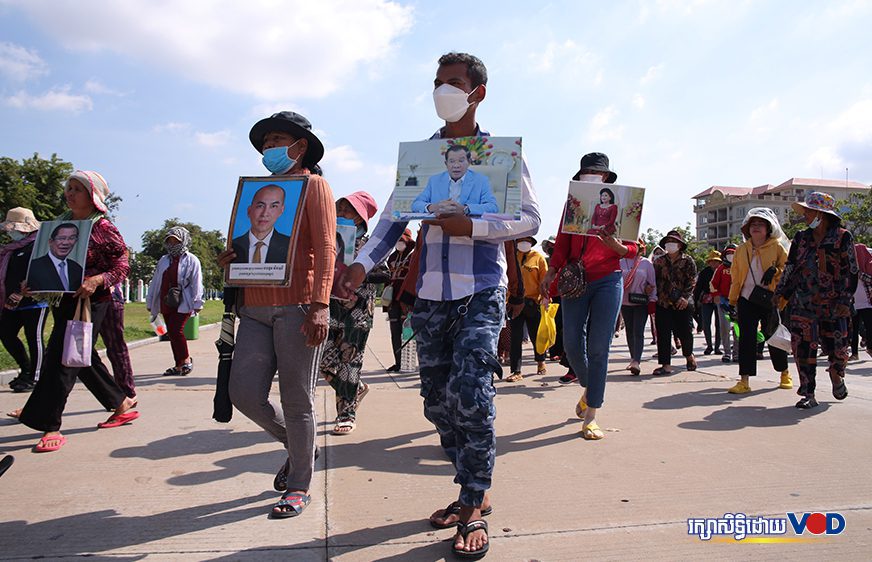About 100 former workers of the Canteran Apparel factory in Phnom Penh have resorted to petitioning the prime minister himself to sort out their grievances, claiming the manager of their site left without warning and shut down the business without paying any compensation.
The laid-off garment makers on Tuesday morning brought a petition to the office of the cabinet of Prime Minister Hun Sen pleading for the help of the country’s top leader. They also petitioned the embassies of the U.S. and Malaysia. Those countries respectively account for the final destination of much of Canteran’s production, which reportedly supplied retail giant Wal-Mart, and the origin of the company’s ownership group, a firm called Jerasia Capital.
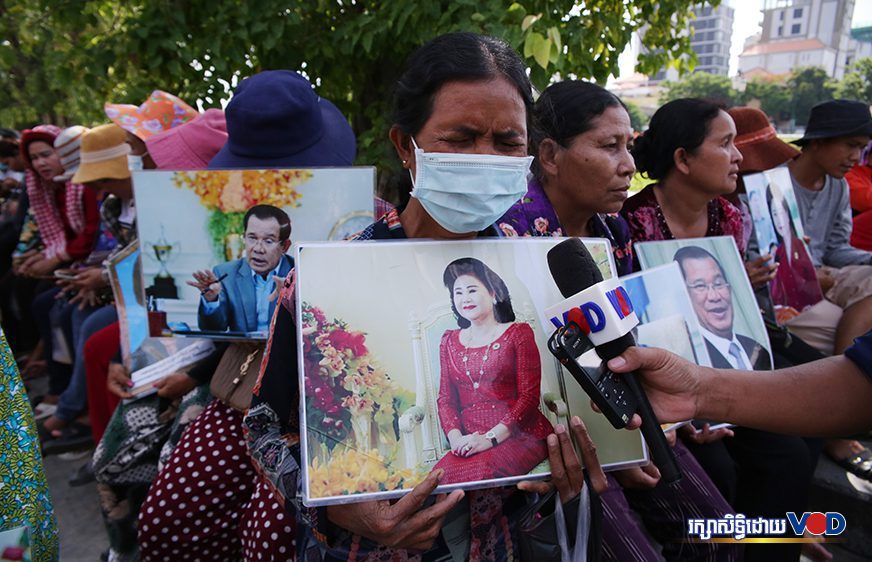
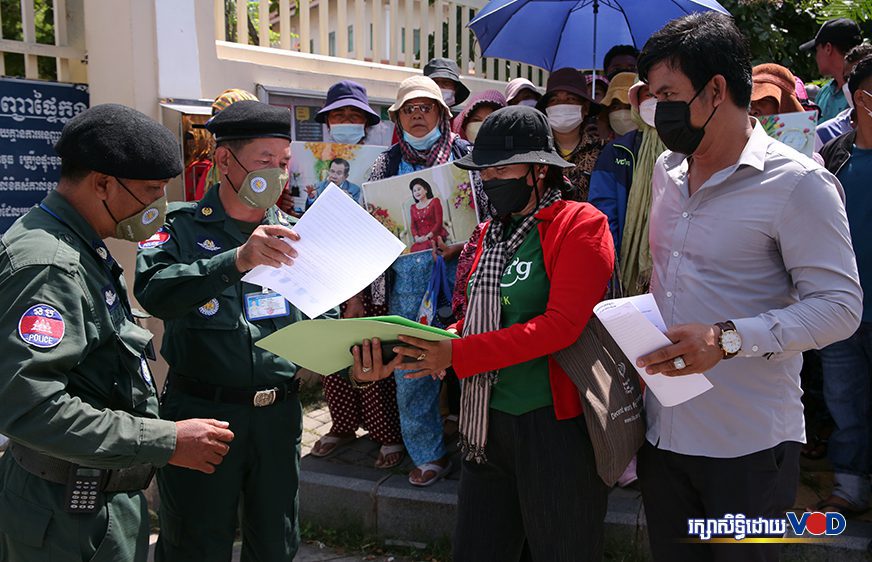
The move comes as official labor dispute mechanisms apparently jammed in their earliest stages. The workers had filed an earlier petition last month with the Labor Ministry and have held at least two sessions with ministry figures. However, the laid-off Canteran laborers claim these steps have not produced a solution to win adequate compensation that union leaders say they’re owed under the Cambodian Labor Law.
As they press their case in official channels, the workers have since May kept a protest camp at the Canteran site, first in the factory grounds itself and now on the gravel edge of Veng Sreng Blvd.
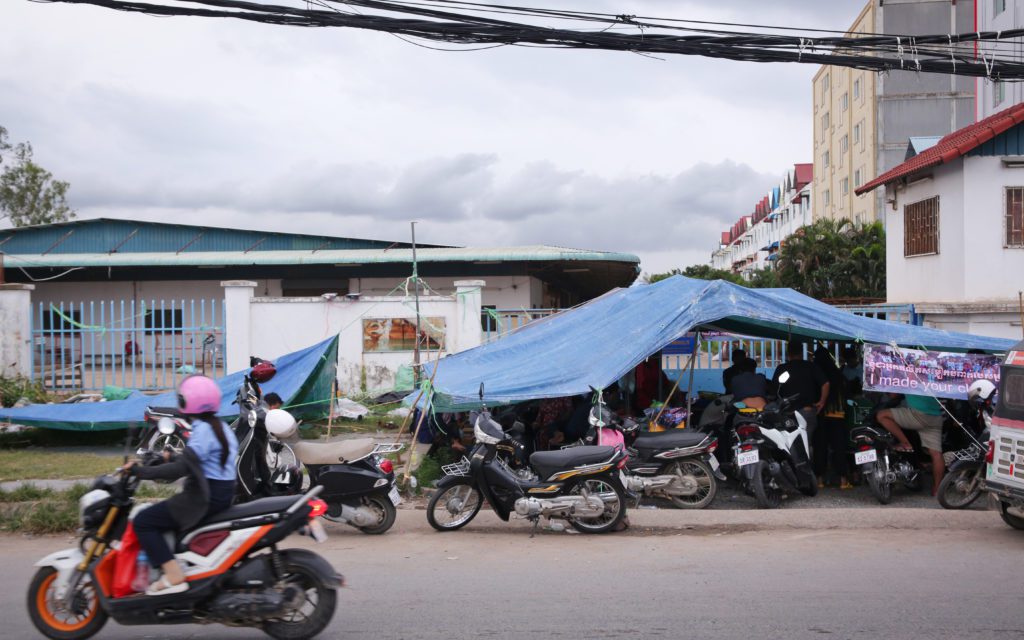
Khun Saven, 60, is one of the workers now camped under a makeshift shelter on the gravel driveway to the factory gates.
Saven cried during an interview about the dispute, saying workers have endured mounting financial stress since abruptly losing their jobs.
“My child dropped out of school to work and help the family, but now there is no work,” she said. “Now I don’t have rice in the pot, or money to pay our debt. I have been doing laundry and washing dishes since the owner ran away.”
Their shelters were strung with banners printed with slogans demanding proper compensation for their abrupt termination from their factory jobs. On a table sat a stack of large, laminated photographs of Hun Sen, his wife Bun Rany, and members of the royal family, images the workers have held for photos shared on social media pleading for help from these powerful figures.
Saven told VOD she’d worked at the factory for 14 years. Now, she and other workers sleep outside of their former workplace on a rotational basis, keeping about 10 people there each night. She and others camped outside the factory on Tuesday afternoon said the official channels had produced no help.
Union representatives at the site told VOD that Labor Ministry officials had told them they couldn’t locate the right factory representatives to secure adequate compensation. Instead, the ministry proposed the workers approve the sale of the remaining equipment from the Canteran factory and take whatever proceeds they could get from that.
The workers said that wasn’t acceptable, as the remaining equipment was old and would not fetch a price that would cover what they’re owed, which they estimated to be roughly $800,000.
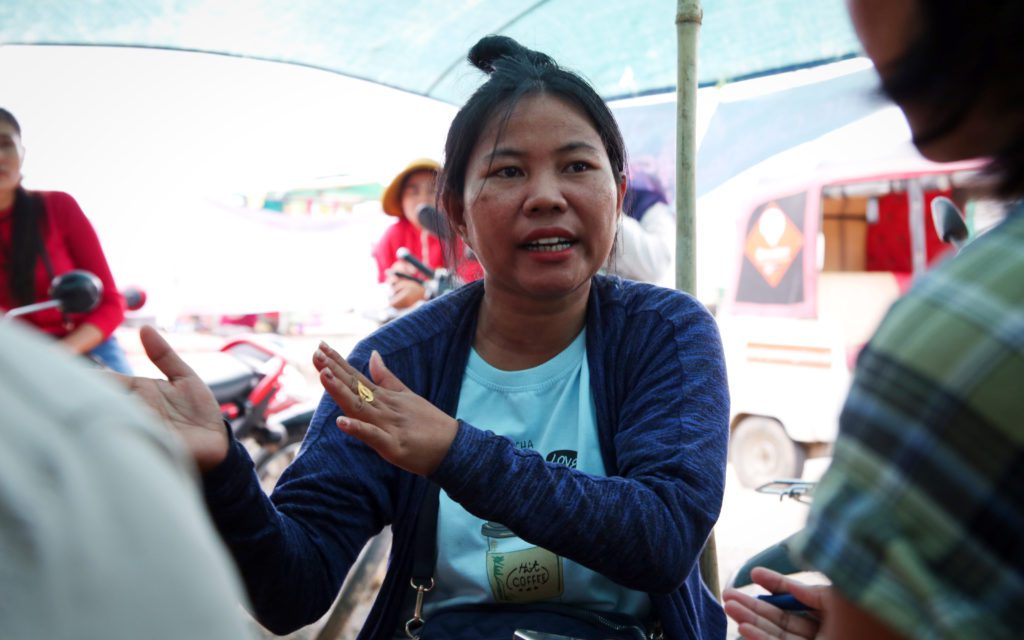
Workers say the factory director left without notice, announcing the end of his time at Canteran with a note posted to staff on May 3. The workers have identified the director as a Malaysian national named Choong Wei Piau.
The Cambodian Ministry of Commerce lists Canteran’s directors as Pronob Kumar Sen Gupta and Yap Fung Kong. Canteran was a wholly owned subsidiary of Jerasia Capital, a publicly traded Malaysian firm that still lists the Cambodian producer on its website.
Jerasia announced in February to the Bursa Malaysia stock exchange that Canteran had defaulted on the repayment of debts worth almost $5.8 million to the United Overseas Bank, which is based in Singapore.
Yap Fuh Kong, the founder of Jerasia, left the company’s board of directors in March along with his daughter, Debbie Yap May See. Malaysian media reported that both cited “personal reasons” in the announcement of their resignation to the Bursa exchange.
The company’s filing to the exchange said the supply chain and consumer demand shocks Covid-19 pandemic had severely challenged its holdings.
“As a result, Jerasia Group’s overall sales plummeted, and it was unable to generate sufficient revenue to meet its repayment requirements,” stated the company in a March 7 filing to Bursa.
About a month after this corporate drama played out in Malaysia, Canteran workers say management began moving equipment out of the factory over the Khmer New Year holiday in mid-April. The workers say they kept their jobs until May 9, about a week after Choong left, and at which point the landlord for the factory space informed staff their company was no longer operating there.
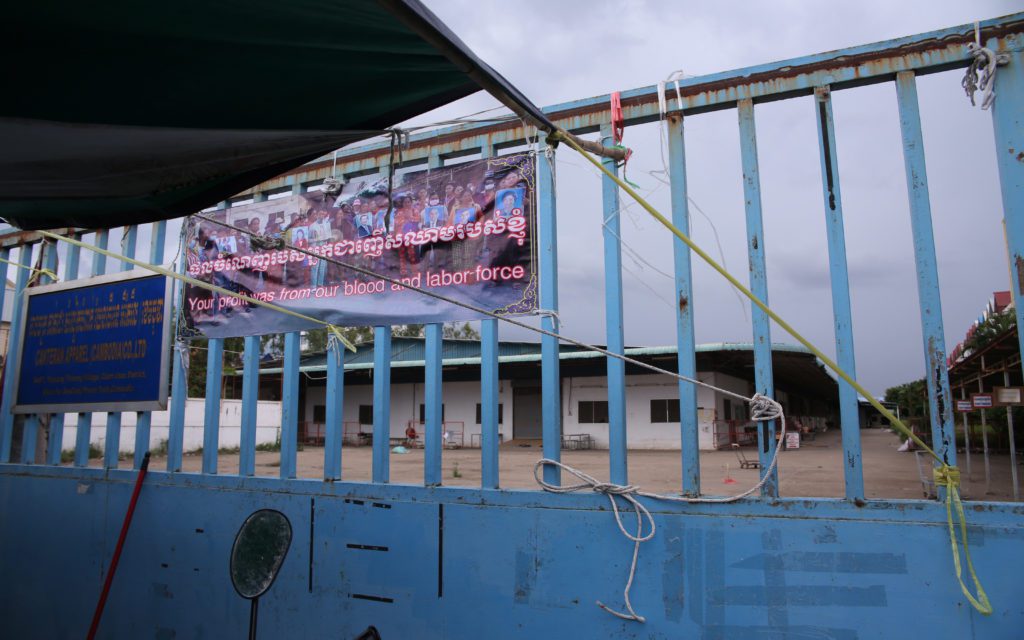
The workers say Choong is currently managing a different garment factory, the nearby Quality Textiles. The workers also alleged Canteran had moved its assets to Quality Textiles. When reached by VOD in May, Choong said he had resigned in January and did not know about the situation or who had replaced him.
It’s unclear whether the Labor Ministry or others in Cambodia have reached out to Jerasia to try to settle the conflict at Canteran. The workers and union leaders who spoke with VOD largely focused on Choong, who by all accounts is not the owner of the factory or its parent company.
Vong Sovann, the Labor Ministry’s deputy secretary-general, said the ministry could not clarify whether the factory owner ran away from the workers, but said his office would still try to find a solution to finish the dispute.
“We’re waiting for the written approval from his excellency, the minister. We will invite them for a meeting to continue to find a solution,” Sovann said. “Normally if the owner runs away, we challenge ourselves to find the solution. It might take time but we will try to compromise for the workers.”
The workers themselves say they have been left frustrated and confused by the abrupt end of Canteran, as well as what they perceive as official neglect.
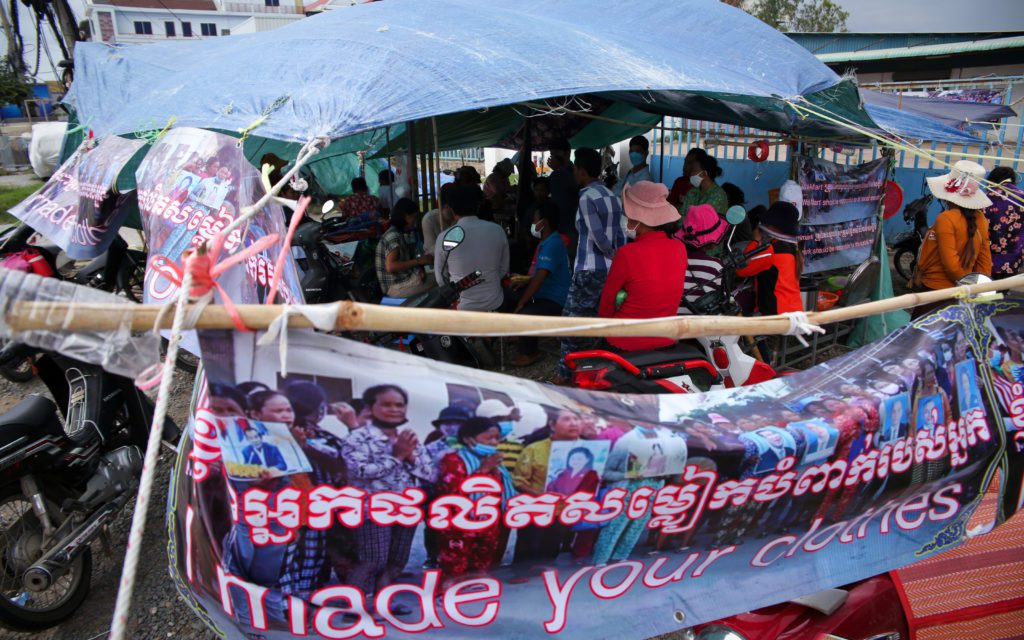
Om Yat, 58, said she was burning through her savings, but would stay at the camp until the dispute found some resolution.
“I’ll remain until the boss comes back and gives us compensation — but also an explanation, because it was ridiculous for him to leave like this,” she said.
Additional reporting by Khut Sokun
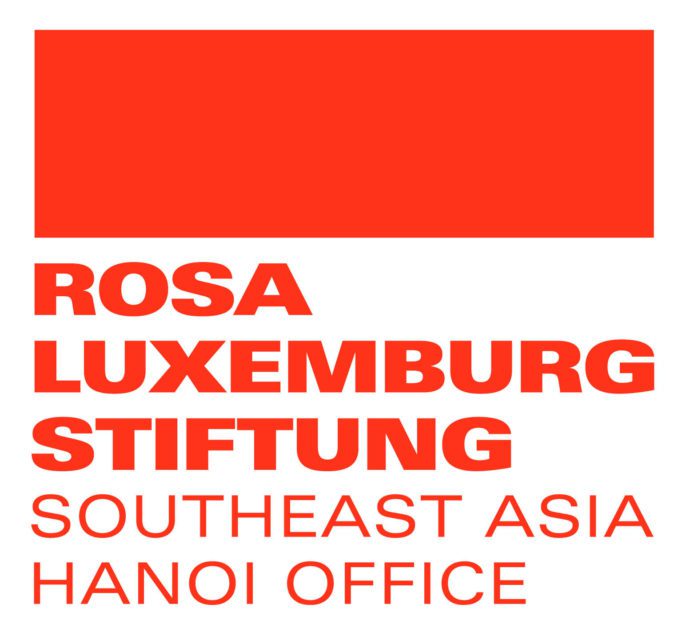 This article is produced with the financial support from Rosa-Luxemburg-Stiftung in Southeast Asia via its Hanoi office.
This article is produced with the financial support from Rosa-Luxemburg-Stiftung in Southeast Asia via its Hanoi office.


